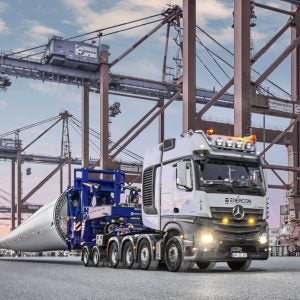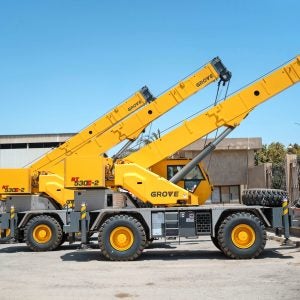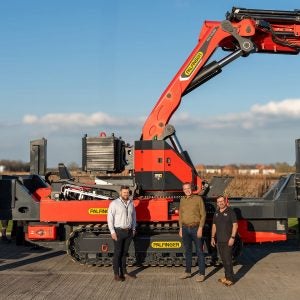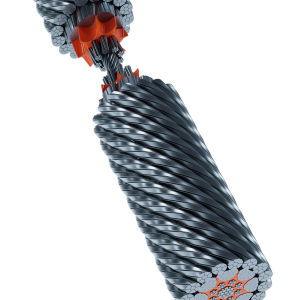Siebenhaar’s core business has always been the development and fabrication of specialised gears, winches and slewing drives for the crane industry and related industries. The company was established by Ted Siebenhaar, in 1965. Initially, the company’s main customer was Krupp, who used Siebenhaar winches and slewing drives on their mobile crane.
For 20 years, the business remained largely focussed on the same customers and products. In 1986, Krupp acquired the company from its founder, making it an in-house supplier.
At that time, Jamshid Yektai was working for Krupp, overseeing its Wilhelmshaven plant (now owned by Manitowoc, and a production centre for Grove mobile cranes). He proposed ways to streamline the business. Krupp didn’t take these up, but later put the company up for sale. Yektai purchased the company in a management buy out, in 1989. Under Yektai, the company moved to a new facility in the same town, Hofgeismar, in the late 1990s. Over the 20 years from 1990 to 2010, the company increased its staff to around 200 people.
The company has developed new supply contracts for its winches and slewing drives outside of Krupp (now Grove), working now with Terex, Tadano Faun, Sennebogen and many others on mobile crane components, and with Wolff and others on tower cranes. A new side to the business, accounting for around half of sales, are special projects in the offshore and mining business for companies like National Oilwell Varco, Huisman or Caterpillar. Jascha André Graefingholt, head of sales, explains, "In the past, our products included only the gear box and simple winch mechanisms.
Today, we are a complete system supplier. So, for big offshore vessels, we supply tailormade winch systems with secondary or free-fall brakes, special spooling devices and hydraulic equipment, for line pulls up to 300t."
While developing its new business in tailormade solutions, Siebenhaar has not forgotten its roots. Over the years, the small winches it was building originally for Krupp have got bigger and bigger. As well as making winches for construction cranes, it has developed a range of free fall winches for ranges like Sennebogen’s duty cycle cranes, now extending up to 45t. On tower cranes, for both Wolff and for Wilbert, it has also been extending the capacity of its winches.
Recently, it was part of a project to deliver special high-speed 600m/min winches to Wolff for a 1,000m high skyscraper in Medina, Saudi Arabia. Graefingholt says, "It’s a real challenge to handle that line speed. You need a specific design for the drum, the make sure the rope is spooling correctly." Siebenhaar works closely with design teams, right at the start of new product development. Graefingholt says, "Very often, especially on projectrelated business, we’re involved in the design at the customer. They’ll call and say, ‘We want to build a machine like last year, but with 20% more capacity, can you visit and work out how we can build the winch?’ So the specifications are very often drawn up by us."
Key to this success with customers is the mix of Siebenhaar’s experience and control of its supply chain. Graefingholt says, "Our USP is we’ve all the engineering in house, all the knowhow is here, and we are very deep in production. We work closely alongside many different companies, in areas like forging, and have our own technology for casting, forging, welding, drilling, turning, gear hobbing, cutting, and grinding. We can take the raw material through to the complete painted end product. The raw material is delivered from partner companies. What comes in is just a piece of steel. We receive forged pieces for inner gears, cast pieces for housings, these sort of components we get.
"For us, 100% material traceability is absolutely standard. Every winch we deliver has [EN 10204:2004] 3.1 material certificates. Most of the component materials we use are produced in Western Europe.
"This is one of our strategic baselines: 100% traceability, 100% in-house manufacturing. The reason customers come to us though, rather than other German manufacturers, is that we have a more or less standard range for gearboxes, but for flanges, input/output, we can offer a customised product. I’d estimate we’ve delivered more than 10,000 different designs of winches and gearboxes overall. Each year, we deliver more than 6,000 units. Others have a common standard product; they’re not flexible. We’re the ones that can make a motor flange 2mm shorter or longer."






